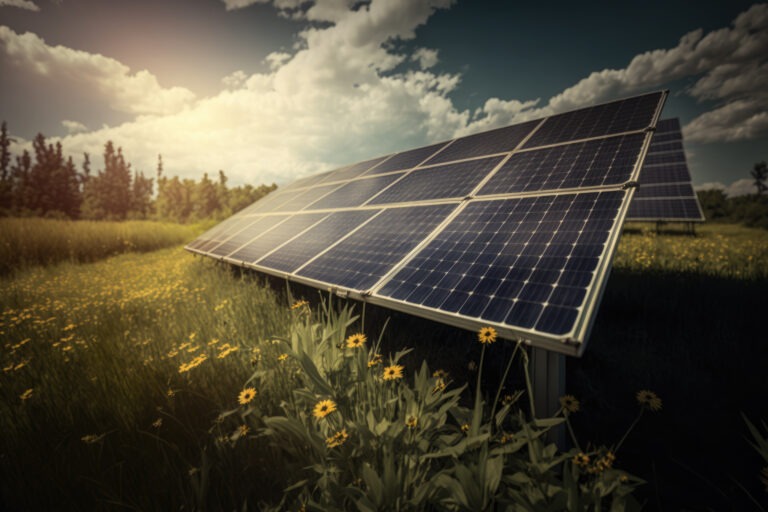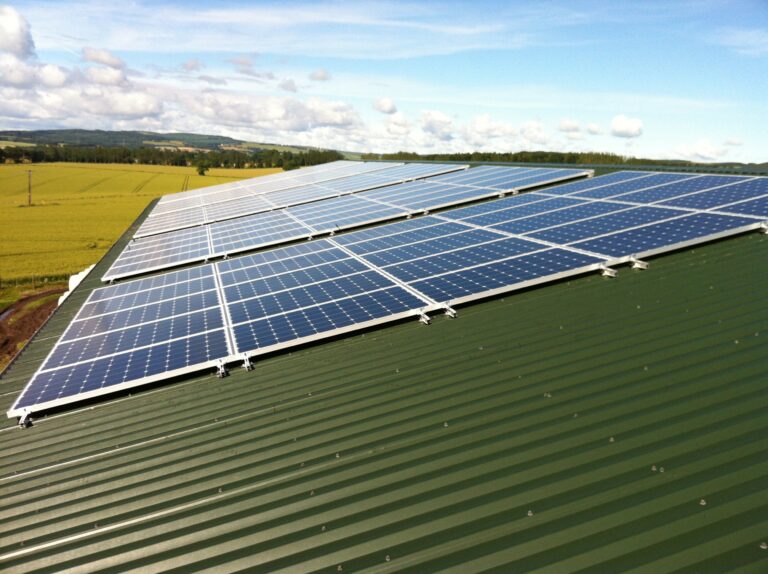Commercial Solar in the UK: The Smart Investment to Make Now
Commercial solar in the UK is growing quickly, and this is not a coincidence. Rising energy costs, the government’s strong net zero targets, and various appealing business incentives have created an excellent chance for organisations to produce their own clean, affordable electricity.
At Excel Energy, we have noticed a significant increase in inquiries from businesses of all sizes, from SMEs to large industrial operators. They are all eager to take more control over their energy use and long-term expenses.
One question comes up more than any other: “Should we act now, or wait?”
The truth is that timing matters. In today’s market, putting off your decision could mean missing out on important financial and strategic benefits. In this article, we will look at the key factors driving adoption so you can decide if now is the right time to invest.
The Energy Market Is Unpredictable – But Solar Isn’t
Energy costs in the UK are still unpredictable. After the 2022 energy crisis, wholesale electricity prices hit record highs. Although prices have stabilised somewhat, volatility continues to concern commercial users.
For many businesses, this uncertainty makes budgeting difficult. Contracts based on wholesale rates can lead to sudden price hikes, which cut into profit margins and redirect funds away from growth and investment.
In contrast, installing commercial solar panels provides a more stable option. Once your system is up and running, a significant portion of your electricity comes from your own rooftop, façade, or ground-mounted array. This reduces dependence on the grid and gives you more control over one of your biggest expenses.
When combined with battery storage, businesses can store extra energy for use during peak-rate times. This helps maximise cost savings and smooth out energy consumption.

Government Targets Are Pushing Solar in the UK Adoption
The UK’s journey to net zero by 2050 is influencing policy, laws, and company behaviour. Key targets include delivering over 70GW of solar capacity by 2035, which is more than triple the current amount.
This solar in the UK progress is backed by various policies, including incentive programs and easier planning processes for certain installations. While these steps create opportunities, they also pressure businesses to meet sustainability goals and lower their carbon emissions.
For companies in carbon-heavy sectors like manufacturing, logistics, or food production, switching to commercial solar panels now can make compliance easier. Adopting early means avoiding a rushed retrofit later, which could come with tighter deadlines and possibly higher installation costs.
What Are Contracts for Difference (CfD)?
The UK solar CfD scheme for businesses is a key way for the government to speed up the use of renewable energy. It operates as an auction-based system that guarantees a fixed price for the electricity produced, providing price stability and protection from changes in the wholesale market.
Although it has typically focused on large-scale generators, changes in 2025 may expand eligibility to include more commercial installations. For businesses that produce a lot of energy or are interested in hybrid generation models, participating in CfD could create an extra source of income.
Since auction rounds are competitive, timing your project to fit into the upcoming bidding windows can be a smart move.
Available Business Incentives for Commercial Solar in the uk
The economics of solar energy have improved significantly over the past decade, and 2025 brings even more compelling reasons to invest.
Some of the key incentives include:
Annual Investment Allowance (AIA), which lets businesses deduct the full cost of qualifying plant and machinery, including commercial solar panels, from taxable profits, up to the current annual limit.
VAT relief, where some installations may qualify for reduced or zero VAT, which lowers the initial cost.
Regional and local grants, as different councils and economic development agencies offer funding or low-interest loans to encourage renewable energy adoption.
Enhanced Capital Allowances (ECAs) apply to certain energy-efficient technologies and can improve cash flow.
Combining these incentives can make the financial case for solar much more appealing, often cutting payback times by several years.

ROI Timeline and Break-Even Point in 2025
The return on investment for a commercial solar power system depends on several factors: system size, design quality, installation location, and whether you include battery storage.
On average, UK businesses see payback in 3 to 7 years. Some achieve this sooner, especially if they use a large portion of the electricity they generate on-site.
Key factors that influence ROI include:
✅ Solar Panel efficiency: higher-efficiency models generate more power per square meter.
✅ Self-consumption rate: the more of your generated electricity you use directly, the faster your payback.
✅ Energy prices: higher tariffs accelerate savings.
✅ System design: optimising tilt, orientation, and technology mix maximizes generation.
At Excel Energy UK, we focus on custom design, not off-the-shelf solutions. This ensures that your solar array is optimised for maximum output and the best possible ROI.
Reputation, ESG Pressure & Competitive Advantage
Environmental, Social, and Governance (ESG) performance is now being examined by investors, supply chain partners, and consumers. Businesses that show clear action on sustainability often gain stronger brand loyalty, boost investor confidence, and improve talent retention.
Becoming a sustainable business with solar in the UK isn’t just about following rules; it’s about standing out. Adopting solar can:



For B2B operators, solar can even be a key factor in procurement processes, especially when dealing with multinational corporations that have strict sustainability goals.
Waiting May Cost More Than Acting Now
It can be tempting to wait for prices to drop, but the truth is that most significant cost reductions in solar technology have already occurred. Module prices are now mostly stable, and in some instances, they have even increased because of supply chain issues including current tariff wars.
At the same time, electricity prices are trending upward over the long term, and incentive programs can change quickly. Acting now allows you to secure today’s favourable conditions instead of risking what may or may not be available in a few years.
Businesses that take action early often benefit from:
➤ Faster payback periods due to current tariffs and incentives.
➤ Achieving carbon reduction goals sooner.
➤ An advantage in sustainability marketing.
Between volatile energy markets, ambitious government climate targets, and appealing financial incentives, the argument for commercial solar in the UK has never been stronger.
By partnering with a reliable provider like Excel Energy, you can make sure your system is designed and installed to the highest standard. This will give you maximum cost savings, a better sustainability profile, and protection from future energy market uncertainty.
The bottom line? For many UK businesses, now is the right time to invest. The sooner you start generating your own clean energy, the sooner you’ll see the rewards, financially, environmentally, and competitively.
